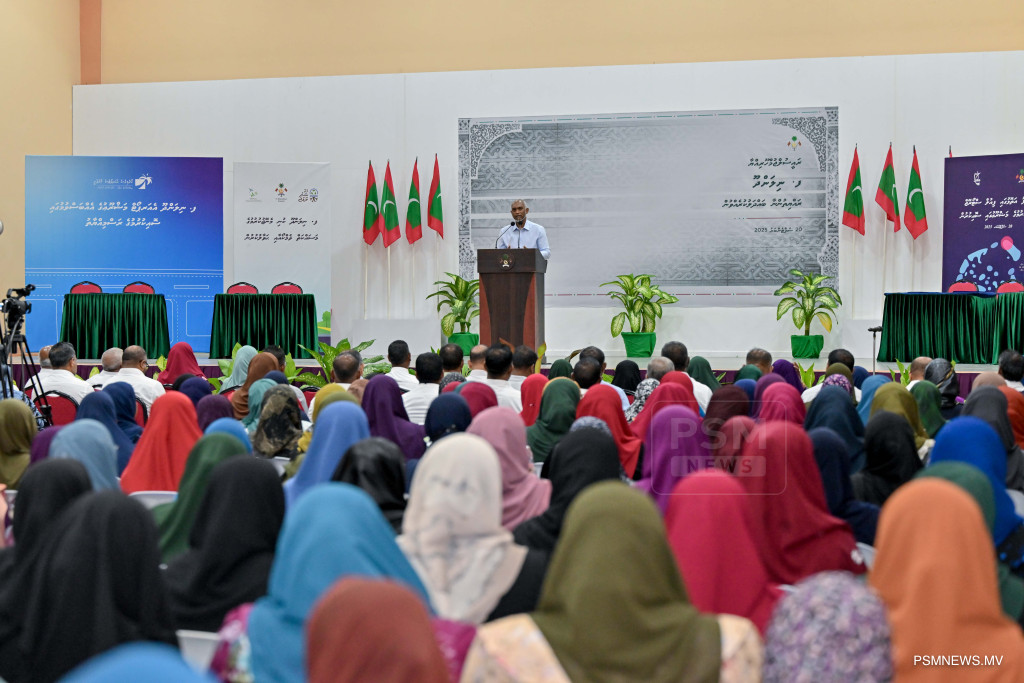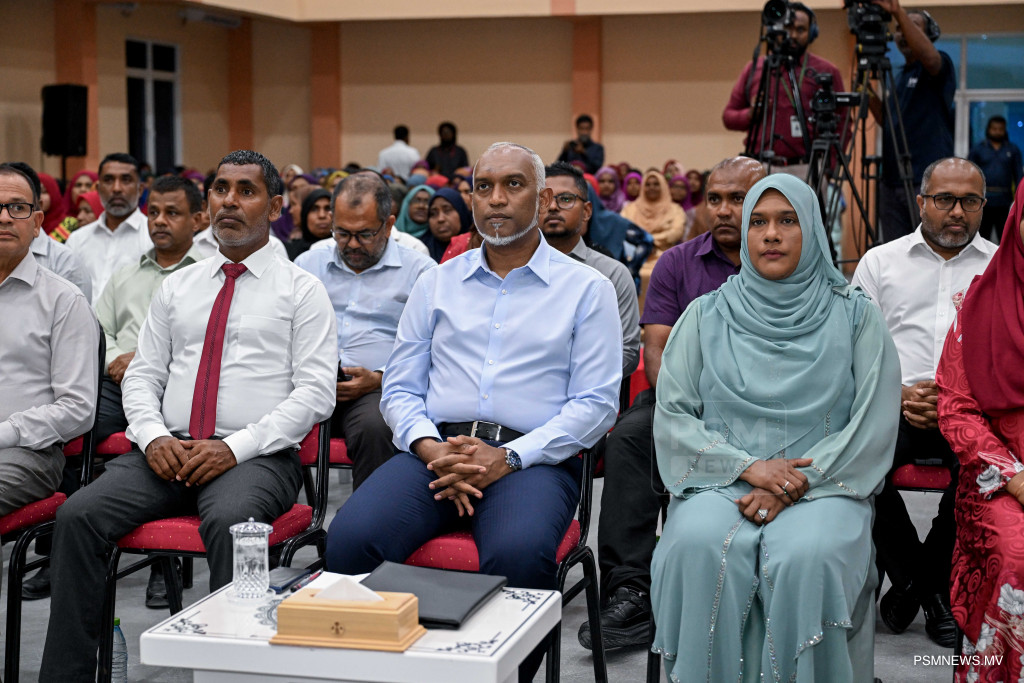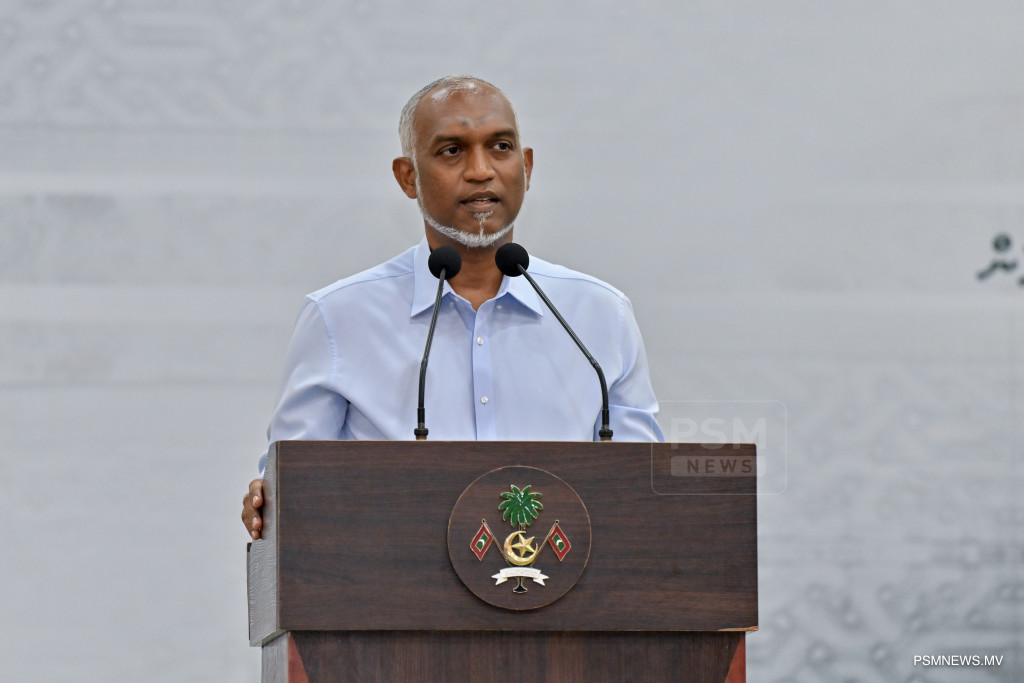
President Dr Mohamed Muizzu, speaking to residents of Nilandhoo during a tour of Faafu Atoll, outlined a domestic agenda focused on enforcing the rule of law without favour, strengthening decentralised governance, and addressing the country’s undocumented migrant population. He pledged to hold all offenders accountable, elevate local councils as development partners, and implement reforms to resolve longstanding national challenges.
A Judiciary Without Favour
In his remarks, President Muizzu criticised previous administrations for selective enforcement and institutional bias, particularly in drug-related cases. He committed to restoring public confidence in the judiciary and law enforcement by ensuring equal treatment under the law.
“We are administering a government founded upon the law, the Rule of Law,” the president stated. “Before me, all Maldivian citizens are equal. All citizens are of the same standing; no one is treated differently. Therefore, we will govern in a manner that ensures the law is enforced equally for all citizens.”
To illustrate this principle, he cited the recent conviction of an individual found guilty of importing 130 kilogrammes of narcotics, describing the case as evidence of impartiality in the justice system. “Previously, in matters like this, the government system was consistently biased. Whether it was the police service or other entities, they would treat the person differently based on their status,” he said.
Legislative amendments to strengthen drug enforcement are in progress, with a bill to be submitted to Parliament. A new law targeting gang-related crime has already been ratified and enacted. President Muizzu underscored that these legal instruments would be applied uniformly and urged public cooperation in addressing entrenched social issues.
Listening to the Islands
Turning to governance, the president drew on his own experience in local administration to highlight the challenges faced by island councils and women’s development committees (WDCs). He described his ongoing atoll visits, accompanied by ministers and heads of state-owned enterprises, as a deliberate effort to simplify the “difficult system” through which local concerns are conveyed to the central government.

He reaffirmed his pledge to visit every inhabited island twice during his term. With his visit to Nilandhoo, he has now met with 86 councils for a second time, having completed the first round of meetings with all local councils. He projected that the second round would conclude by early October.
Policy changes are also underway. For WDCs, the government has arranged a Ramadan allowance and doubled their budget allocation from council funds, from 5 per cent to 10 per cent, supplementing existing salaries and allowances. The president signalled that further reforms to the decentralisation framework would be introduced next year.
Counting the Uncounted
Addressing migration, President Muizzu described the presence of undocumented migrant workers as one of the Maldives’ most pressing challenges. He criticised previous governments for failing to address the issue and highlighted the launch of 'Operation Kurangi', a nationwide initiative to collect data and regulate the migrant population.

“Over the past two years, we have gathered information on 178,982 foreign nationals. This is a very substantial figure,” the president stated, noting that the total number of migrant workers, estimated at 200,000, had previously been unknown.
Enforcement measures have already begun. The president reported that 8,609 undocumented migrants have been deported, contrasting current efforts with what he characterised as nominal action in the past. “Previously, the deportation of undocumented migrants was merely nominal. However, in just a short period, we have already deported 8,609 individuals,” he revealed.
He also addressed the economic implications, stating that migrant workers were unlawfully encroaching on businesses intended for Maldivian citizens, a concern his administration is actively working to resolve.
